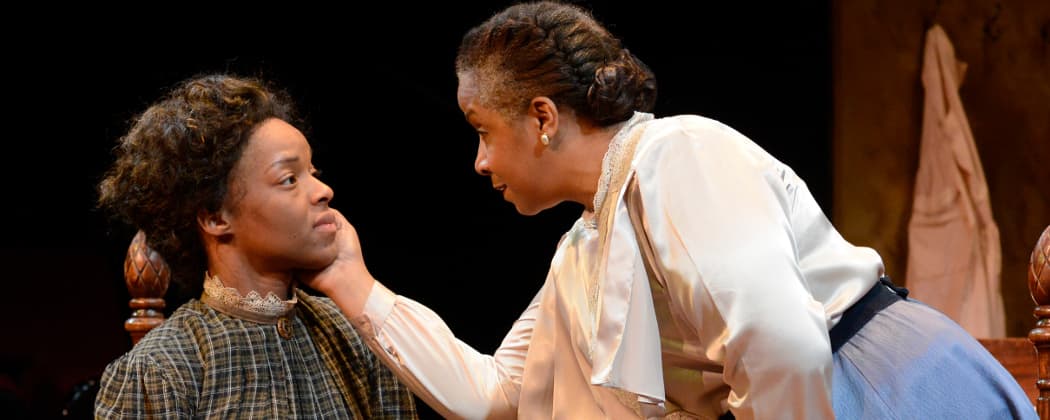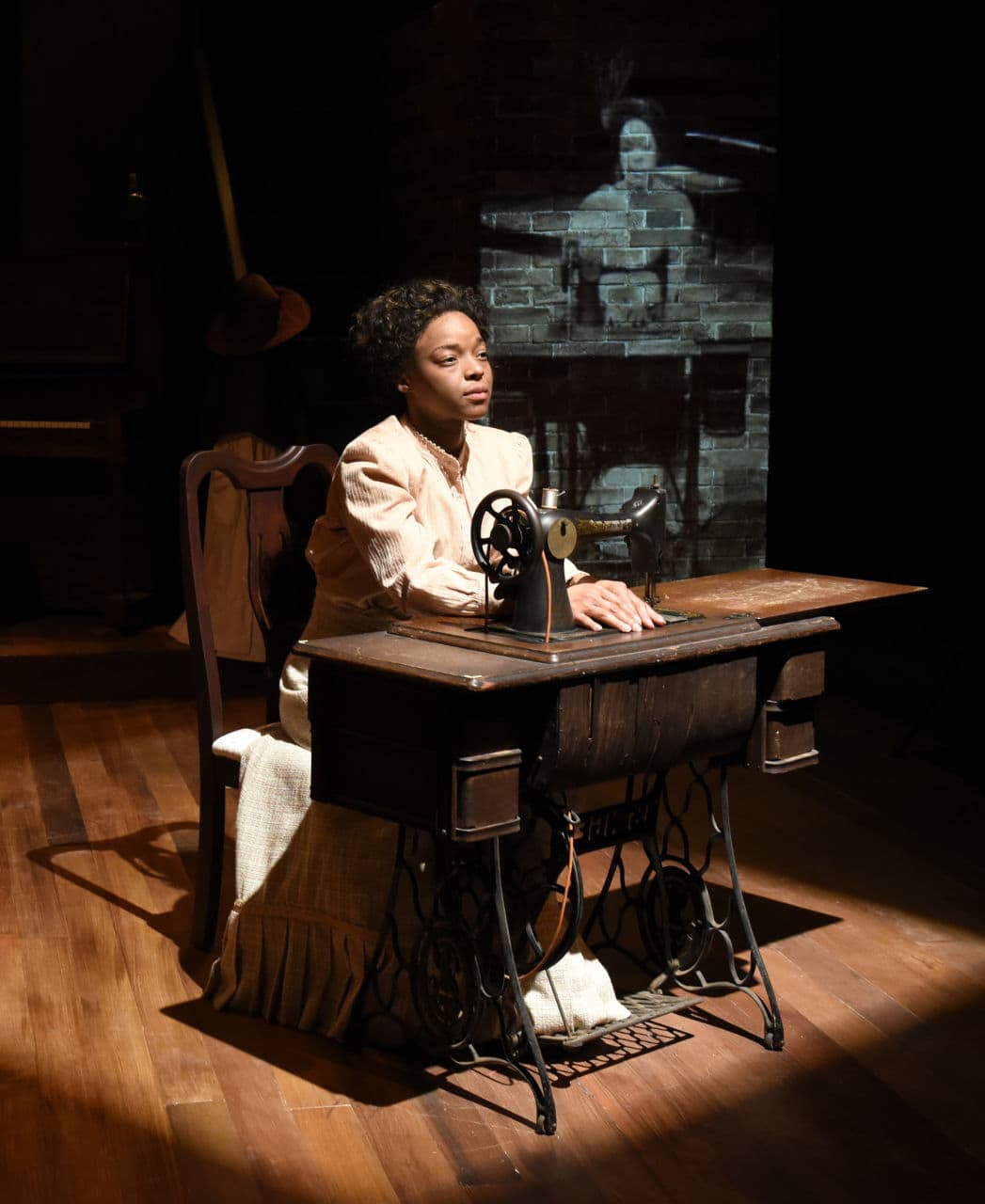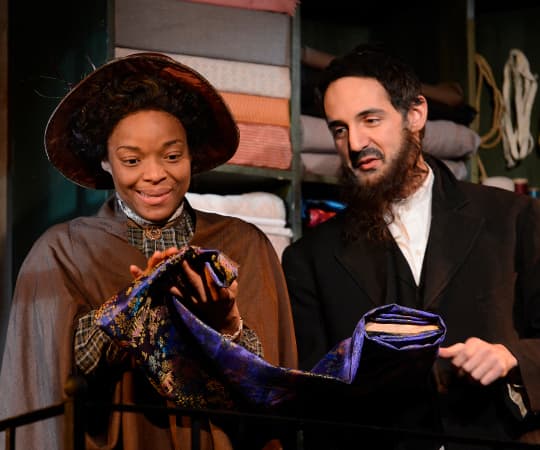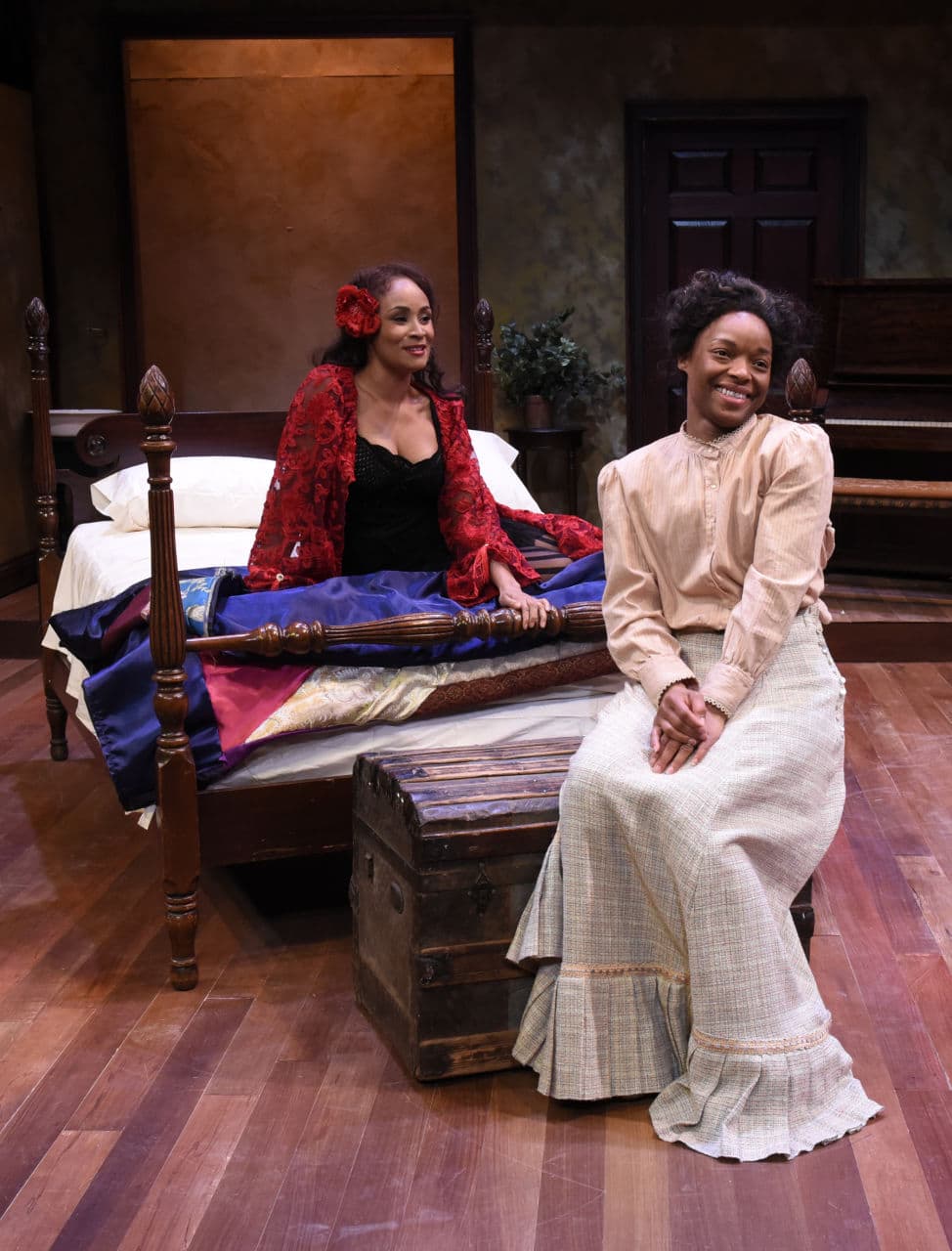Advertisement
The Lyric Stage Dons 'Intimate Apparel' With Grace

Lynn Nottage’s 2009 Pulitzer Prize-winning “Ruined” depicts women both exploited and defended amid civil war in the Democratic Republic of Congo. The playwright’s 2003 “Intimate Apparel” is subtler, frillier and devoid of rape or gunfire. But in Summer L. Williams’ robust staging for the Lyric Stage Company of Boston (through March 14), it is, in its quiet way, devastating.
The fictional but historically feasible story of an independent black woman in early 20th-century New York, the play, winner of the 2004 Steinberg New Play Award, was inspired by a period snapshot and is framed by a couple of them. At the center of the picture is Esther, a 35-year-old woman who as a teenager walked north from Carolina to what she hoped would be a better life. She landed in an urban stew from which neither racism nor sexism had been eliminated as ingredients. And her natural humility and social conditioning have done little to sweeten the pot.

Esther, however, has learned a trade and learned it well. Her business, though plied on an old-fashioned sewing machine in an all-female rooming house, takes her into the boudoirs of both Fifth Avenue and the racier Tenderloin district: She makes exquisite undergarments for rich white ladies and prostitutes for whom the lacy corsets and camisoles are a sort of work uniform. And sensible though she is, Esther nurses dreams of both love and entrepreneurship. (She wants to open a beauty parlor in which black women would be pampered like their white counterparts.) But as traced in the play, Esther’s pursuit of one fantasy destroys the other — at least for a while. Hers is a low-key story that in this lively production rings absolutely true. Moreover, in telling it, Nottage includes several others.
Plain-Jane Esther would appear to be the major confidante of her earthy landlady, a lonely if bejeweled Caucasian customer whose husband blames her for their childlessness, and a frank, pretty African-American prostitute who plays ragtime piano, swigs gin and would rather put up with her customers than take up a harder if more seemly trade. All three of these women have depended on men but not on romance. Esther proves a sucker for the latter, blossoming like a flower when a lonely-hearts letter arrives from a Barbados-born gentleman sweating out his living on the Panama Canal. And hers is not the only lonely heart: Mr. Marks, the Romanian-Jewish immigrant who sells Esther material, shares with her a lust for fabric that in less constricted circumstances might lead to something.

I have seen this play before and found it somewhat wan if well crafted: I wondered what the prizes and praise were about. Credit is due, then, to the Lyric staging. In Williams’ lively production, the small-scale, talky drama ranges all around a compact, atmospheric setting by Anne Sherer that includes an interchangeable bedroom with pineapple-festooned four-poster, a patch of urban brick exterior, the steep stair to Mr. Marks’ cramped lair of sensual dry goods and the little chunk of Panama suggested by Kelsey Jarboe’s sound design. Composer and music director Allyssa Jones punctuates the show with infectious ragtime ditties, and Kris Sidberry, as Esther’s prostitute pal Mayme, though she does something else for her supper, sings nicely. (Her simulated piano playing’s not bad either.)

All of the performances are satisfying, especially those by Cheryl D. Singleton as Esther’s compassionate if cautionary landlady and Nael Nacer as the orthodox fabric purveyor whose respect for cultural tradition has him as cinched in as one of Esther’s corsets would. As epistolary wooer George Armstrong, who shows up somewhat cruder in the flesh, Brandon G. Green manages both the lilting patois that has one lady friend dub him Songbird and the portrayal of a guy who does rotten things without being entirely rotten. The scene in which his mercenary motivation comes out is a veritable roll in the hay with cash that is painful to watch.
At the heart of the work, of course, is Esther, in a lovely performance by the expressive Lindsey McWhorter. Like Singleton’s Mrs. Dickson, McWhorter’s shy but steely Esther is possessed of an earthy, spontaneous laugh that, however repressed she is, seems to spring from a joyful center and hint at roiling emotional depths. Her sadder but wiser ending may be a tad subtle. But there is a hint of future generations to come along, find those stagy period photographs, and delve into the real-life stories behind them.
Carolyn Clay was for many years the theater editor and chief drama critic for the Boston Phoenix. She is a past winner of the George Jean Nathan Award for Dramatic Criticism.